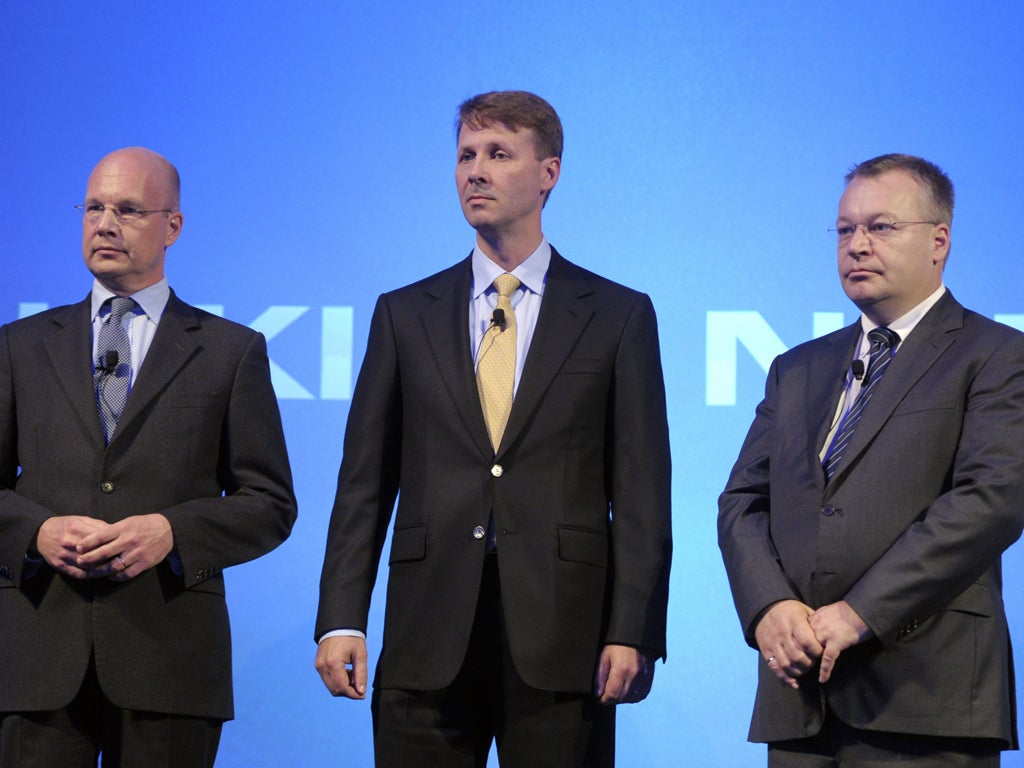Deals that spell out what the work we do is really worth
Wealth generation is a complex and unpredictable process, where a handful of talented - or lucky - business leaders have a disproportionate impact on the lives of millions


Making things is a lot less valuable then selling a service. That is one of the harsh lessons to be drawn from the difference between the price of the two great telecom deals this week. A minority share of a US mobile phone service is worth nearly 20 times as much as the manufacturing business of what was until last year the world’s largest manufacturer of handsets.
The valuation of companies is arbitrary, as the huge swings in share prices exemplify. The FTSE 100 share index is 18 per cent higher than it was a year ago but that does not mean the companies are intrinsically more valuable now. The swings in individual companies are, of course, much greater. But what a big deal does is to give a snapshot of perception of value at one moment in time.
Right now Vodafone’s 45 per cent share of Verizon’s mobile business is worth $130bn (£84bn) while Nokia’s handset business, plus its patents, both bought by Microsoft, are worth only $7.2bn.
Lesson one is that people are quite fickle as to what products they buy but quite sticky as to who they choose as service providers. Nokia had nearly half the market of mobile phones five years ago and still has 18 per cent, second to Samsung. But that is not enough. None of the original manufacturers of mobile phones, including Motorola and Ericsson, still operates as a stand-alone producer. Even one key later innovator, BlackBerry, has put itself up for sale. By contrast Apple and Samsung have revolutionised the market.
If, however, you look at mobile phone services, all major developed markets have settled into an oligopoly of a handful of operators. Verizon happens to be the biggest in the US. These major markets are more or less impossible to break into, for while customers can switch they rarely do.
Lesson two flows from this. Market share is clearly little protection because once that starts to slide you are in big trouble. But ownership of a network of users is hugely valuable. That network could be mobile phones, or could be a Google or a Facebook. Or less obviously it could be a global after-sales service: Rolls-Royce is the world’s second largest manufacturer of aircraft engines but earns nearly two-thirds of its engine revenues from spare parts and servicing installed engines rather than selling new ones.
Lesson three is broader: wealth generation is a complex, quirky, unpredictable process, where a handful of talented – or simply lucky – business leaders can have a quite disproportionate impact on the lives of millions of people.
Vodafone was created out of a military communications company called Racal, itself now owned by a French defence company called Thales. Nokia was a Finnish lumber and paper mill firm that had branched into rubber boots and power cables. You can see the connection between battlefield radios and mobile phones, but timber and handsets? Yet a series of decisions by a handful of people turned one into the world’s largest mobile phone company and the other the largest handset producer.
Those key decisions were taken some 30 years ago. The lesson for us now surely is that we cannot hope to see which bits of our economy will bring in the bacon over the next 30 years but what we can do is foster the conditions whereby people who want to create a new global giant are as likely to do so here as anywhere else. Many of us intuitively feel that only in the US could anyone create a Facebook or a Twitter. One task of our political and economic leadership is to prove that wrong.
Let’s not get too excited...
Now that Labor Day in the States is past, there is a back-to-school feeling in the air – and it is a broadly positive one. In the US, the key issue is the start of “tapering”, the gradual decrease in the monthly purchases of Treasury securities by the Fed. Already the 10-year bond yield has risen to nearly 2.9 per cent – a month ago it was 2.6 per cent and a year ago 1.5 per cent. So policy is tightening ahead of anything the Fed does and the end of the purchases by next summer is now quite accepted. Couple this monetary move with the sharp tightening of fiscal policy and you could say things are moving back towards some sort of normality.
Here in the UK there is a quite different mood from the spring, with good news from retailers and manufacturers this week. Monetary policy is also de facto tightening, notwithstanding our new Governor at the Bank of England: 10-year gilts are yielding nearly 2.9 per cent too. My own concern is that just as many people here were unreasonably gloomy in the spring, maybe they are too positive now. Economic recoveries rarely move in straight paths, and the obvious disruptive influence might come from Europe after the German elections.
The other great imponderable is the slowdown in Asia. That is undoubtedly happening and question is whether this is a net negative or positive for the West. Lower Asian demand cuts our exports to the region but it also will reduce commodity and energy prices, which would help Europe in particular.
But all-in-all not a bad autumn looms, which makes a change, doesn’t it?
h.mccrae@independent.co.uk
Join our commenting forum
Join thought-provoking conversations, follow other Independent readers and see their replies
Comments
Bookmark popover
Removed from bookmarks